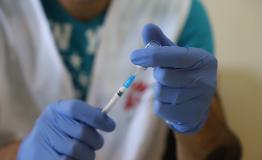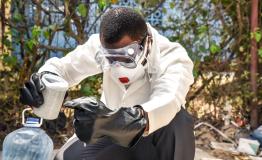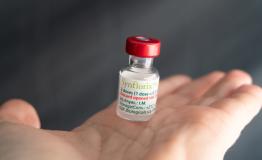

Tunisia
MSF handed over its projects in Tunisia to other organisations in October 2017.
In the town of Dehiba, just a few kilometres from the border, MSF set up a stabilisation centre, caring for people who had been injured in the conflict. We also ran mobile clinics in Dehiba, Remada and Tataouine, offering medical and psychological support to refugees, and began offering mental health services in Shousha refugee camp and two other transit camps in the area.
From 2012 to late 2017, we offered primary healthcare and mental health support through a facility in Zarzis, a coastal town in southeast Tunisia. In 2016, medical activities were expanded to cover migrants and other vulnerable communities in Sfax, a large city 280 kilometres north of Zarzis. Another team provided medical assistance to people remaining in Choucha camp, near the Libyan border, until their forced eviction in June 2017.
36
36
2011
2011
In 2017, MSF signed an agreement with the Ministry of Health enabling it to continue its activities for migrants, refugees and victims of human trafficking, as well as vulnerable local people with limited access to the national health system, around the coastal towns of Zarzis and Sfax.
In Zarzis, MSF mobile teams provided medical and mental health support in the Red Crescent centre in Medenine, where they conducted 1,833 consultations. One in three consultations were for women. Mobile teams also offered medical and mental health support to the last remaining residents of Choucha camp until their forced eviction in June 2017, carrying out a total of 109 consultations. The camp had opened on the Libyan border in 2011, for people fleeing war in the country.
In Sfax, MSF provided medical and psychological assistance to victims of human trafficking, migrants from sub-Saharan Africa and other vulnerable people. Teams also conducted emergency interventions for people arriving at the ports of Sfax and Zarzis. MSF donated drugs and medical kits for emergencies – including intravenous fluids, medical equipment for dressings and cannulas – to authorities in Medenine Governorate. MSF supported national authorities in response to hepatitis A epidemics, funding 7,200 vaccines for the national Ministry of Health.
In October, MSF handed its activities over to other organisations and closed its projects.


MSF: Governments must demand pharma make all COVID-19 vaccine licensing deals public

MSF challenges COVID-19 myths with new quiz challenge app

MSF and TB activists disrupt opening of TB conference to protest drug corporations keeping life-saving medicines from people

Tips to De-Stress
